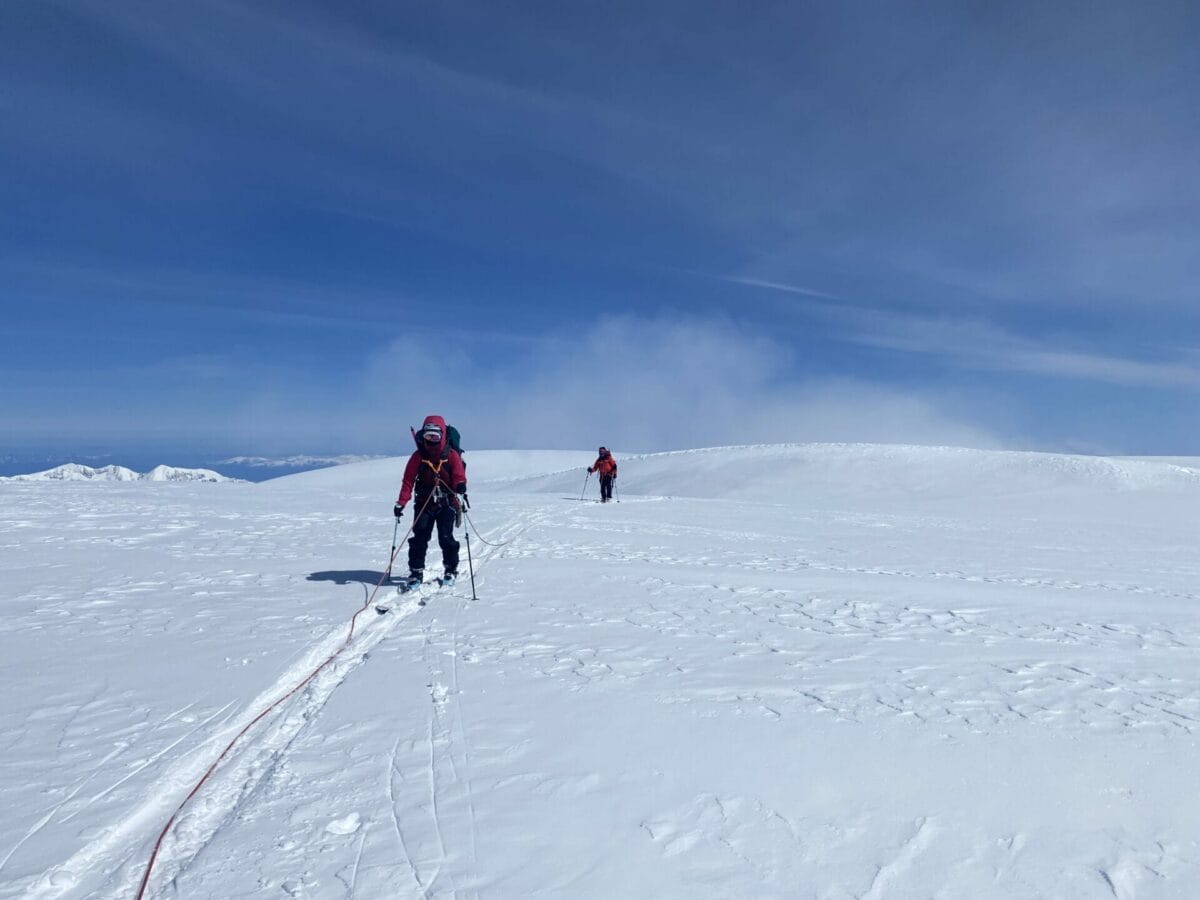
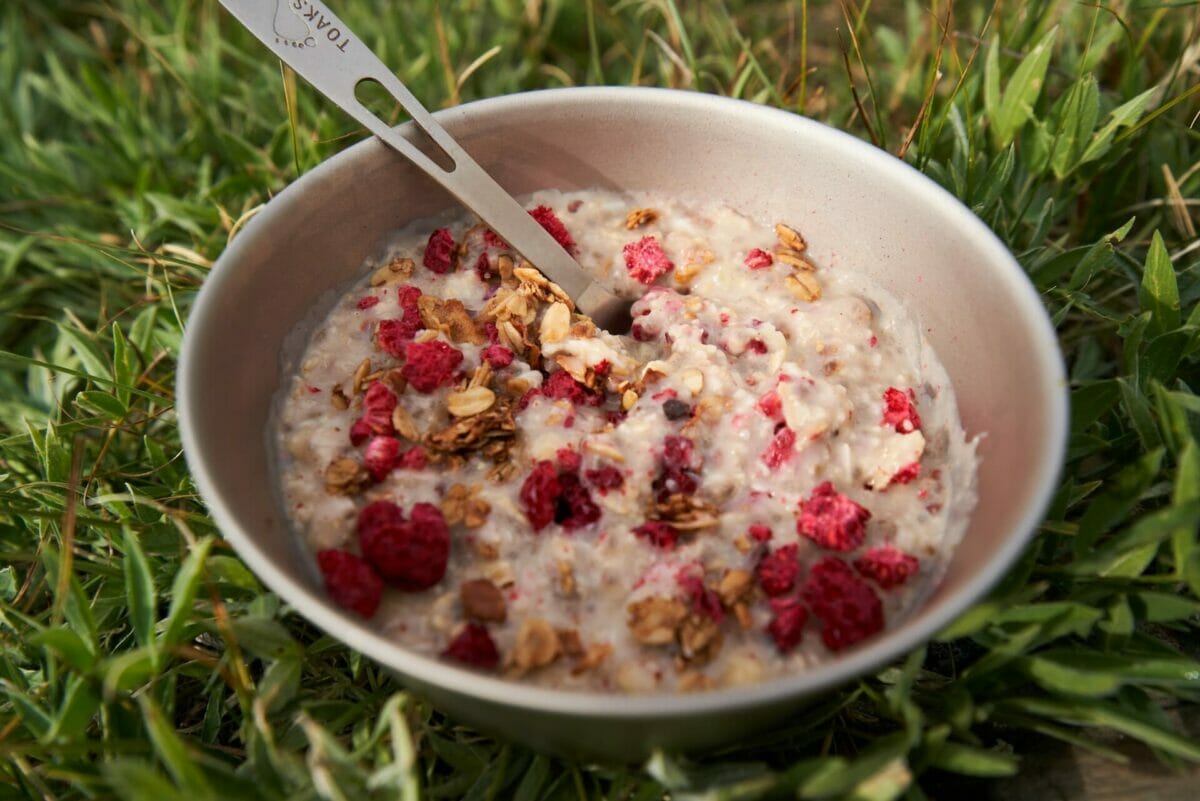
Backpacking is a fantastic way to connect with nature, your friends, and your innermost self. However, if you are gluten-sensitive, eating conventional gluten-containing backpacking meals and snacks can make your innermost self feel crummy (nobody wants an unhappy gut while backpacking)! I speak from experience as a gluten-sensitive backpacker!
I’ve been eating a gluten-free diet for 10 years, ever since I discovered I was sensitive to gluten in my early twenties. While I do not have Celiac disease, I have non-celiac gluten sensitivity (NCGS), a reaction to gluten that is not autoimmune in nature but which is increasingly recognized by the medical community. (Source)
I’ve also worked with hundreds of clients with celiac disease and NCGS in my nutrition practice. Needless to say, I have a lot of experience working with gluten sensitivity!
Removing gluten significantly improved my IBS symptoms, mood, and skin health. While I have tried reintroducing gluten a few times, it consistently triggers problems for me, so I no longer include it in my diet.
My years of eating a gluten-free diet and my passion for backpacking have led me to experiment with countless gluten free backpacking foods. When embarking on backpacking adventures, it’s essential that your gluten-free trail cuisine not only satisfies your taste buds but also provides the nourishment necessary to keep you happy and energized.
This article is a compilation of my favorite gluten free backpacking food options!
I hope you find this article helpful! As always, I welcome your feedback in the comments section!
Please note that I am an affiliate for some of the products I’ve linked to in this post. If you click the link here and make a purchase, I may earn a commission at no extra cost to you.
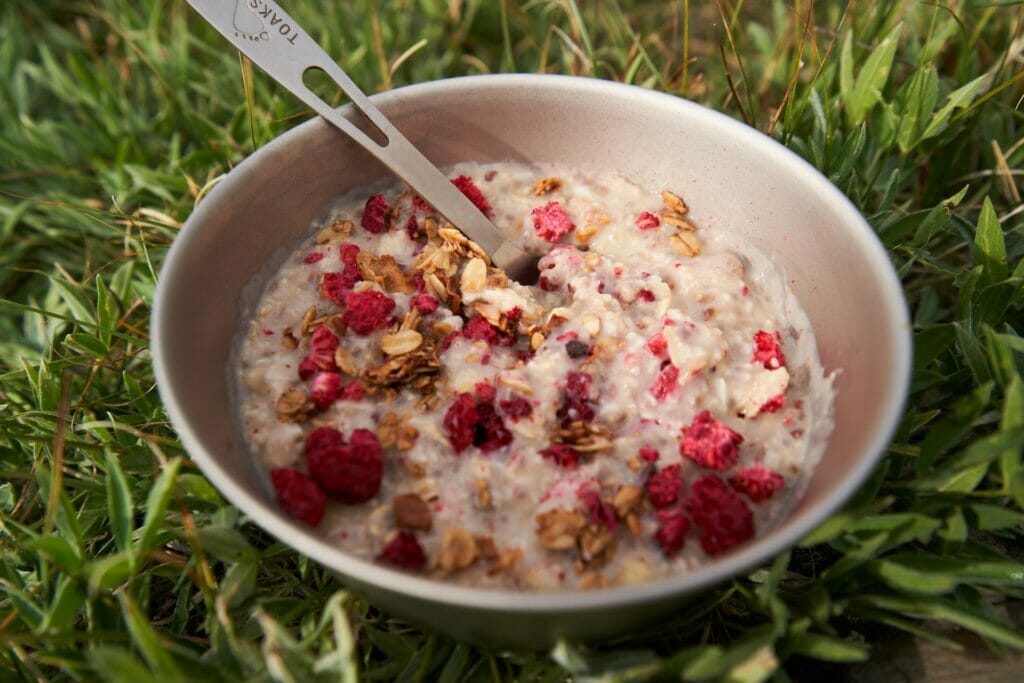
Gluten free food options are ever-increasing. However, just because a food is labeled “gluten free” doesn’t mean it is a great choice! When purchasing gluten free backpacking food (and gluten free food in general), here are the guidelines I use:
While it is fine to occasionally enjoy treats sweetened with added sugars while backpacking, such as candy, we don’t want these to be our staple foods on our backpacking adventures.
Added sugars are sugars that are added during the processing of foods. Examples of added sugars include sucrose, dextrose, syrups (such as brown rice syrup or agave syrup), and cane sugar. Added sugars do not include sugars that naturally occur in whole foods, such as fruits. (Source)
Most people’s primary dietary sources of added sugars are sugar-sweetened beverages, baked goods, desserts, and candy.
Eating foods high in added sugars can drive significant blood sugar fluctuations. Dramatic swings in blood sugar can cause unstable energy and may make you more likely to “bonk” while backpacking.
Added sugars can also trigger gut issues, such as bloating and gas; this may occur because added sugars can promote the growth of unhealthy bacteria in the gut microbiome and suppress levels of beneficial bacteria. A healthy gut is essential for optimal athletic performance, so a high sugar intake may work against your athletic goals as a backpacker. (Source)
Takeaway: Most of the time, choose gluten-free backpacking foods with little to no added sugars.
Whole food carbohydrates are carbohydrate-containing foods that have been minimally processed. Whole-food carbohydrates include whole fruit, sweet potatoes, white potatoes, root vegetables, legumes, and whole grains such as quinoa and steel-cut oats.
Generally, when we eat whole-food carbohydrates, our bodies experience a gentle rise in blood sugar, providing us with a sustainable energy source. The gentle, sustained rise in blood sugar provided by whole-food carbohydrates is valuable when you are hiking for hours and need a consistent energy source!
Conversely, refined carbohydrates are carbohydrates that have gone through a manufacturing process. This manufacturing process may turn the carbs into flour and flour-based foods like pasta, bread, and crackers. Refined carbs also include added sugars.
Refined carbs typically produce a sudden spike in blood sugar and energy, often followed by a significant drop in blood sugar that can cause fatigue and lethargy. While refined carbs are great for providing quick energy while hiking, eating bread, crackers, and other baked goods (even of the gluten-free variety!) frequently while backpacking may cause significant energy fluctuations, an increased tendency for bonking, and a less enjoyable experience overall.
If you are going to eat refined carbohydrates, I recommend enjoying them at the end of a hike, when your muscles are primed to quickly take up glucose from your bloodstream; this can help reduce the magnitude of the blood sugar spike caused by refined carbs.
Many gluten-free alternatives, such as gluten-free bread, are high in refined carbohydrates such as potato starch, tapioca starch, and various flours made from gluten-free grains.
Takeaway: Most of the time, eat whole-food carbohydrates while hiking for sustainable energy.
Many hikers gravitate towards carbohydrate-rich foods when hiking, such as fruit, candy, crackers, and chips. There’s a good reason for this – carbs provide us with energy to fuel our muscles while we hike! While there’s nothing wrong with enjoying some carbs (especially whole-food carbs) while backpacking, it is best to pair carbs with protein rather than eat them by themselves.
Protein helps keep blood sugar balanced. Eating gluten-free carbs and protein together in your meals and snacks while backpacking will support a balanced blood sugar response and more sustainable energy levels.
For example, you could pair high-quality beef jerky with plantain chips (more on my favorite brands of these items below!) or an apple with 2 tablespoons of peanut butter or almond butter to create a snack with a balanced protein and carb content.
Examples of gluten-free backpacking meals with balanced carb and protein content include sweet potato noodles with rehydrated beef or chicken and sauce or a wrap with deli meat, guacamole, and veggies.
Takeaway: Eating protein at each meal and snack will provide you with sustained energy throughout your backpacking adventures.
I recommend choosing backpacking food that provides some essential nutrients, such as vitamins and minerals.
Vitamins and minerals are crucial for energy production and athletic performance. Vegetables, whole-food carbohydrates, nuts, seeds, and animal proteins are excellent sources of vitamins and minerals.
Takeaway: Your body needs vitamins and minerals to stay active and healthy while backpacking. Incorporate nutrient-dense foods into your backpacking cuisine.
There are MANY naturally gluten-free foods that you can eat while backpacking! Here’s an overview of my favorites:
Nothing beats the convenience of a gluten-free backpacking meal! I’ve tried each of the brands listed below and can vouch for their flavor. I also like that these backpacking meals balance protein, carbs, and fats (for the most part) since this balance is vital for maintaining your energy.
Fresh fruits such as apples, bananas, and berries provide water for hydrating your body, carbohydrates for energy, and potassium, a crucial electrolyte for hydration and muscle contraction.
Fruits are also naturally gluten-free! Certain fruits, such as apples, oranges, and bananas, are portable, making them an easy addition to your hiking food repertoire. These foods also don’t include any packaging (unless you count the skin of a banana or the rind of an orange as “packaging!), making them a low-waste, environmentally-conscious snack option.
Sometimes, it’s easier to pack dried fruit rather than fresh fruit for backpacking, especially if you’re short on space in your backpack and want to keep your load light.
Like fresh fruit, dried fruit is naturally gluten-free. However, it is important to watch for added sugars and sulfites, a type of food preservative, in dried fruits.
Dried fruits are already a rich source of natural sugars, so there’s no need to eat dried fruit coated in extra sugar! The combination of dried fruit coated in added sugars can sometimes cause gastrointestinal distress for hikers and the dreaded “sugar rush,” followed by a steep drop in blood sugar and energy levels. If you have a sensitive stomach or experience blood sugar fluctuations, consider purchasing unsweetened dried fruit.
Sulfites are preservatives added to certain foods, including many brands of dried fruit, to preserve the dried fruit’s taste and color and inhibit bacterial growth.
In some people, sulfites have been found to trigger skin reactions, abdominal pain, diarrhea, asthma, and anaphylactic reactions. Based on these potential reactions, I think it is wise to steer clear of sulfite-containing dried fruits. (Source)
Here are several brands of sulfite-free dried fruits that I recommend:
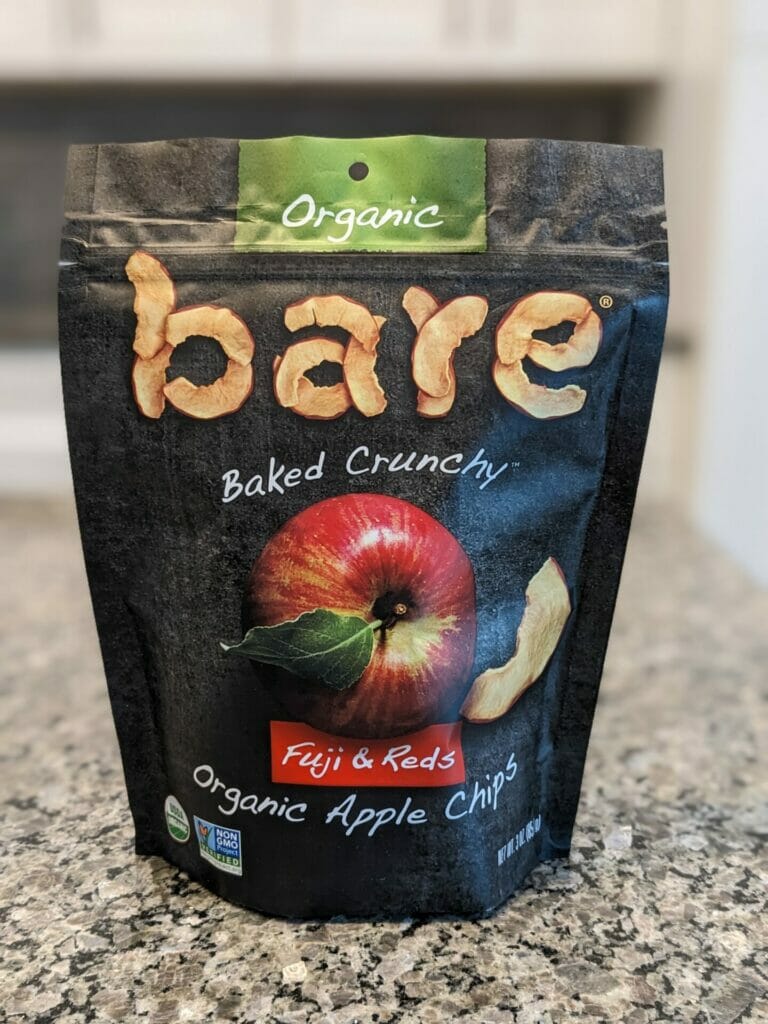
Dates can be consumed either fresh or dried. These little pieces of “nature’s candy” are rich in potassium and magnesium, essential electrolytes necessary for hydration and muscle function, and fiber, which can help keep you “regular” while backpacking.
Dates are also highly portable and can easily be combined with nut butter for a snack balanced in carbohydrates and protein. In fact, slicing open a date and “stuffing” it with a scoop of almond or cashew butter makes for an absolutely delicious snack!
Getting sick of eating sweet foods on your backpacking trip? Try a savory snack!
Olive packs are the perfect portable savory snack for backpacking. They are rich in healthy monounsaturated fats and are very satiating! I love Gaea olive packs. Pair with cheese and a piece of fruit for a well-rounded snack!
No, I’m not suggesting you consume gas station beef jerky on the trail, though you could in a pinch! I recommend selecting a high-quality beef or turkey jerky that contains just beef or turkey, salt, and spices.
Beef, poultry (such as chicken and turkey), and all animal proteins are naturally gluten-free, making them a perfect protein-rich snack option while hiking. Jerky is also portable and resistant to spoilage. A few of my favorite gluten-free jerky brands are Chomps, Paleo Valley, and Epic Bars.
Tuna and salmon packets are a convenient protein option that you can easily bring along on your backpacking trip. Salmon provides omega-3 fatty acids, which may help quench inflammation caused by exercise, helping you recover faster so you can backpack again the following day!
Please note that these pouches will add some weight to your pack since the tuna and salmon pouches contain some water.
You can mix tuna or salmon with rehydrated rice and peas over your backpacking stove for simple and filling dinner. I frequently recommend Wild Planet tuna and salmon pouches.
Nuts, seeds, and nut/seed butter provide a calorie-dense snack for hiking, with healthy fats, some protein, vitamins, and minerals to boot.
Nuts and seeds are naturally free of gluten. Please note, however, that nuts and seeds are often processed on machinery that processes gluten-containing grains, causing the nuts or seeds to become cross-contaminated. If you have celiac disease and are highly sensitive to gluten cross-contamination, consider purchasing nuts, seeds, and nut/seed butter produced in gluten-free facilities.
Pair a handful of nuts or seeds or a packet of nut butter with fresh or dried fruit, and you will instantly have a snack balanced in protein and carbs to support sustainable energy throughout your hike!
I also recommend purchasing nut and seed butter that is free of added sugars and industrial seed oils. As I’ve discussed in previous blogs, industrial seed oils (canola, corn, cottonseed, safflower, sunflower, and soybean oils) are a very recent addition to the human diet, and a growing body of research indicates they are inflammatory, especially if consumed regularly in the diet.
Chronic inflammation can impair exercise performance and recovery. If you aim to stay physically fit and able to backpack for a lifetime, avoiding inflammatory foods such as industrial seed oils may help.
Here are several of my favorite brands of nuts, seeds, and nut/seed butter that are free of added sugars and industrial seed oils:
Snack bars are a super convenient food to bring along hiking. However, many snack bars contain gluten-containing grains, such as wheat flour. If you are gluten-sensitive, you’ll need to read labels carefully to make sure any bars you’re eating are gluten-free.
I like snack bars that have relatively simple ingredient lists. Bonus points if the bar provides some protein! Here are several of my favorite gluten-free snack bar brands for backpacking:
Baked gluten-free chips provide a helpful hit of carbohydrates and salt (a vital electrolyte!) while hiking. Just make sure you store them in a place in your backpack where they won’t get crushed!
I recommend choosing baked chips baked in an oil with a high smoke point, such as avocado or coconut oil. The high smoke point of these oils inhibits the formation of inflammatory compounds in the chips when they’re being baked.
Furthermore, if you choose chips made from whole foods, such as plantains or sweet potatoes, you’ll also get potassium and fiber. My favorite chip brands are Artisan Tropic Plantain Strips, Barnana Plantain Chips, and Jackson’s Honest Avocado Oil Sweet Potato Chips.
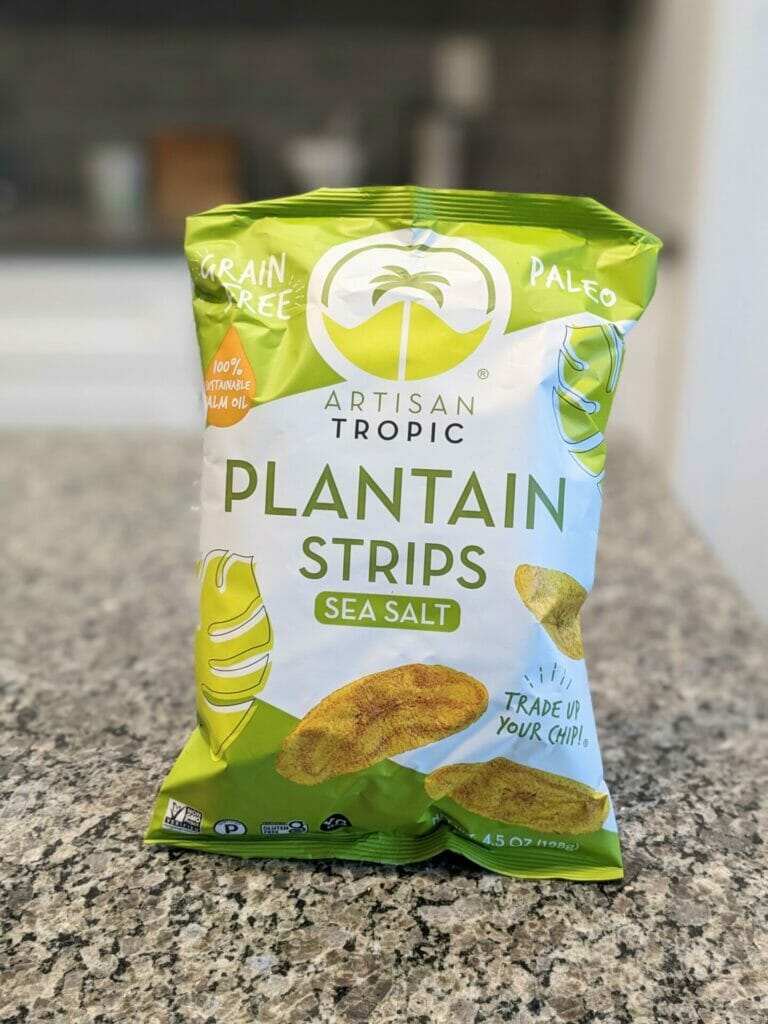
Granola provides the perfect combination of carbs, fat, and a touch of protein to keep you fueled during your hike! The key to choosing gluten-free granola is to select granola that doesn’t contain wheat, barley, rye, triticale, or any “ancient” forms of wheat, such as kamut or spelt. You can also look for the “gluten-free label” on your bag of granola.
Granola made with oats is usually gluten-free. Grain-free granola centered around ingredients such as nuts and seeds is naturally gluten-free.
As much as possible, I like to choose granola that contains very little added sugar. Wildway Granola is delicious and contains no added sugars; the sweetness of the granola is provided solely by dates and other dried fruits.
Fill your reusable silicone baggie with sliced veggies and a small Tupperware container with hummus or guacamole, and you’ll have a refreshing, naturally gluten-free veggie snack for the trail!
As strange as it sounds, I often find myself craving fresh veggies towards the end of a hike. Please note that if you pack veggies, hummus, and/or guacamole, you’ll want to eat it within the first day of your backpacking trip so it doesn’t spoil in your pack.
Vegetables like bell peppers, carrots, cucumber, and celery provide your body with water, electrolytes, vitamins, and minerals. They are also the perfect “vehicle” for a creamy, filling dip like hummus or guacamole.
I mentioned earlier that refined carbohydrates, such as flour-based foods, should be consumed less often than whole-food carbohydrates. However, I also acknowledged that there’s a time and a place for refined carbs. Sandwiches and wraps are a convenient way to refuel on the trail and can be balanced if we fill the sandwich or wrap with protein, healthy fats, and even some veggies.
Certain gluten-free breads and wraps toe the line between whole-food and refined carbs. The brands of gluten-free bread and wraps listed in this section are relatively less refined than most gluten-free baked goods on the market. They are made with wholesome ingredients and omit the highly refined starches and added sugars in many gluten-free baked goods.
There’s nothing quite like enjoying a hot cup of coffee first thing in the morning at camp while you’re backpacking! Coffee beans are naturally gluten-free. However, some brands of instant coffee may contain gluten as a filler. (Source)
For this reason, I recommend choosing a gluten-free instant coffee if you are gluten-sensitive. Purity Coffee is a wonderful resource for organic coffee, and its instant coffee packets are perfect for backpacking, car camping, and mountaineering! It tastes great and unlike any other instant coffee (i.e., way better!) that I’ve tried.
If you are very sensitive to gluten, you may want to avoid the oat-based gluten-free hiking food described in this article.
Emerging research shows that although oats don’t contain gluten, they are highly cross-contaminated with gluten based on how they are grown, stored, and processed. Therefore, if you have celiac disease, you may want to forgo oats and consume other gluten-free foods while hiking (and in your daily diet) instead. (Source)
If you are very sensitive to gluten and need an alternative to instant oatmeal while hiking and backpacking, I suggest trying the grain-free hot cereal from Wild Zora. In my experience, all of the flavors are delicious! Wildway grain-free hot cereal is also a delicious option!
Embarking on a gluten-free backpacking adventure doesn’t mean sacrificing taste, nutrition, or convenience! As we’ve explored in this blog, a diverse array of delicious gluten free options are available for backpackers.
From lightweight dehydrated meals to energy-packed snacks and even gluten-free alternatives to traditional backpacking staples like tortillas and granola, there’s something to satisfy every palate and dietary need!
To make your next backpacking trip a success, remember to plan ahead, do thorough research on gluten-free options, and experiment with different foods before hitting the trail. Whether you have celiac disease or non-celiac gluten sensitivity, there’s no need to compromise on flavor, nutrition, or your outdoor experience.
With the right gluten free backpacking food, you can confidently fuel your adventures, knowing you’re taking care of your health while enjoying the beauty of nature. So, pack your gear, lace up your boots, and savor the freedom of the wilderness with the best gluten-free backpacking food options at your side. Happy trails and happy eating!
Do you need help putting together your ideal backpacking nutrition plan? Are you ready to have boundless energy, a happy digestive system, and peak performance on the trail? I’d love to help!
In my nutrition practice, I help mountain athletes (including backpackers!) optimize their nutrition so they can feel and perform their best. If you’re ready to get started, you can schedule your free discovery call to learn more here!
Would you like a super convenient, easy-to-read, PDF version of this comprehensive blog? Grab your PDF copy of The Best Gluten Free Backpacking Food!
The content provided on this nutrition blog is intended for informational and educational purposes only. It is not a substitute for professional medical advice, diagnosis, or treatment. Always seek the advice of your physician or other qualified health provider with any questions you may have regarding a medical condition. Never disregard professional medical advice or delay seeking it because of something you have read on this blog.
The information and recommendations presented here are based on general nutrition principles and may not be suitable for everyone. Individual dietary needs and health concerns vary, and what works for one person may not be appropriate for another.
I make every effort to provide accurate and up-to-date information, but the field of nutrition is constantly evolving, and new research may impact dietary recommendations. Therefore, I cannot guarantee the accuracy or completeness of the information presented on this blog.
If you have specific dietary or health concerns, please consult a qualified nutritionist or another healthcare professional for personalized guidance.
I empower others through nutrition to conquer their mountain adventures, drawing from my own experiences.
With a background in Biomedical Science and an M.S. in Human Nutrition, I’m a Certified Nutrition Specialist and Licensed Dietitian Nutritionist. My journey in functional medicine has equipped me to work alongside athletes and tackle complex health cases. As a passionate trail runner, backcountry skier, and backpacker, I strive to support others on their paths to peak performance and well-being.




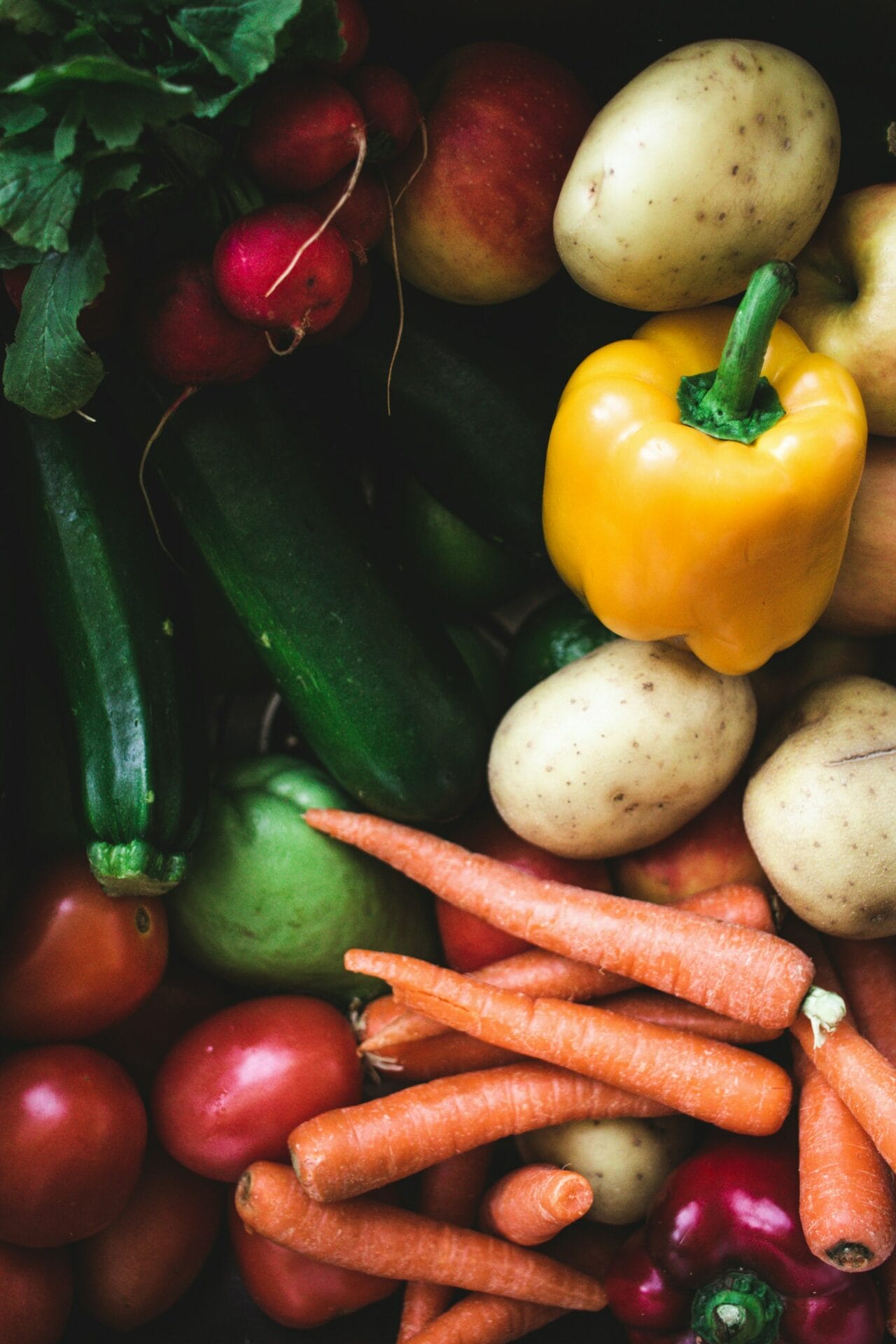
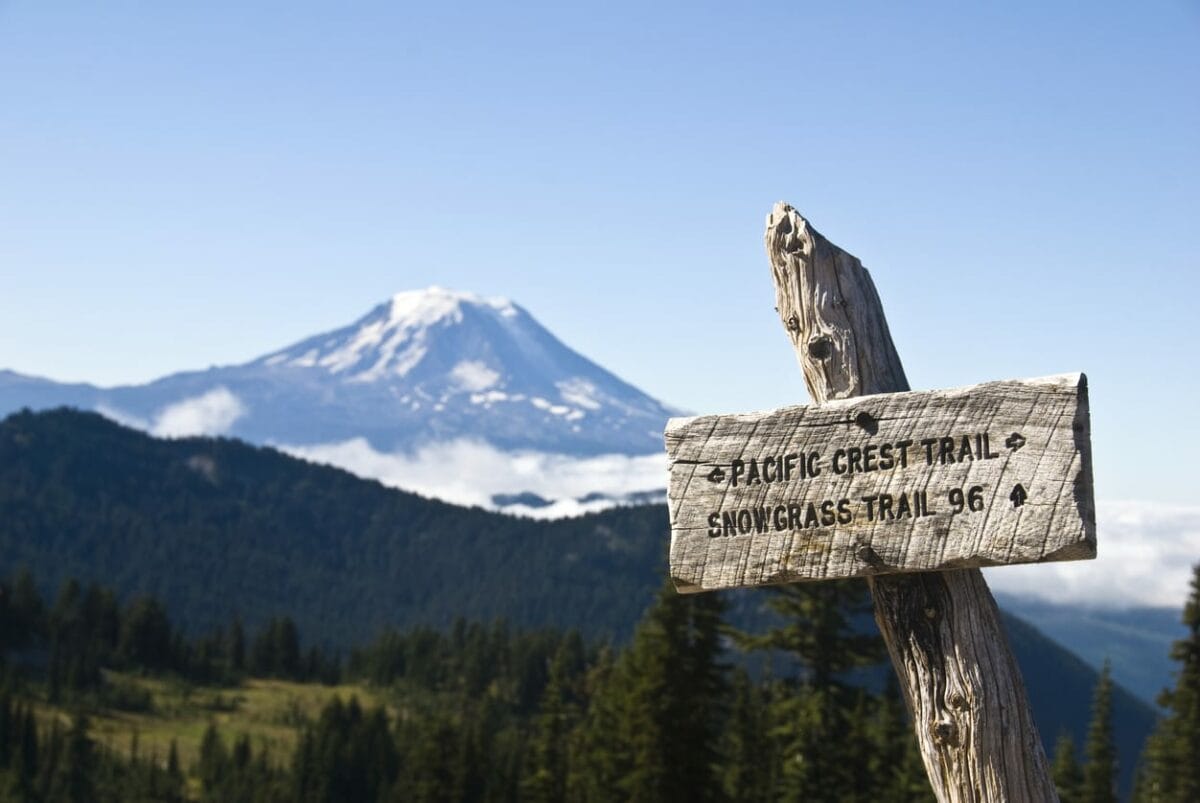
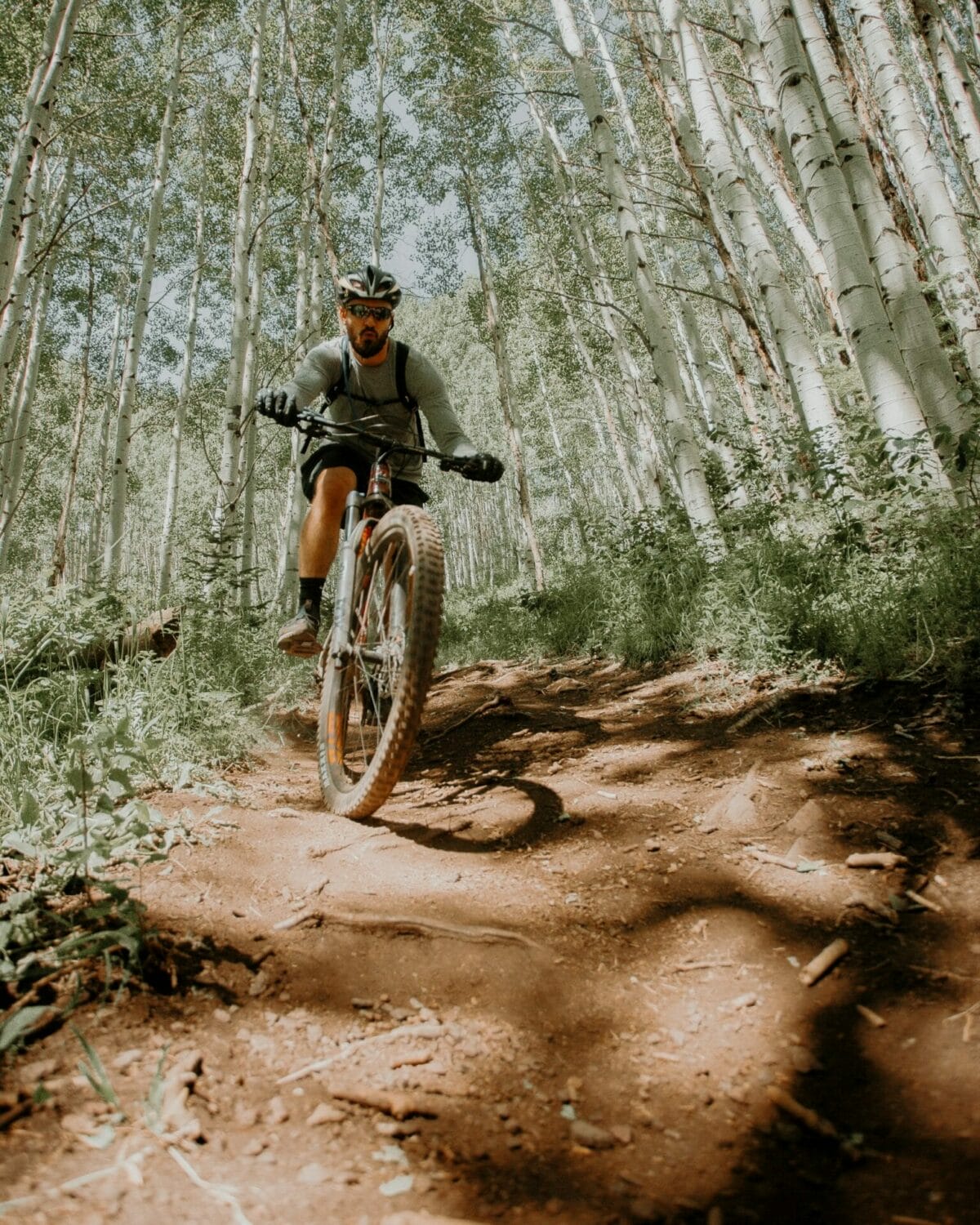
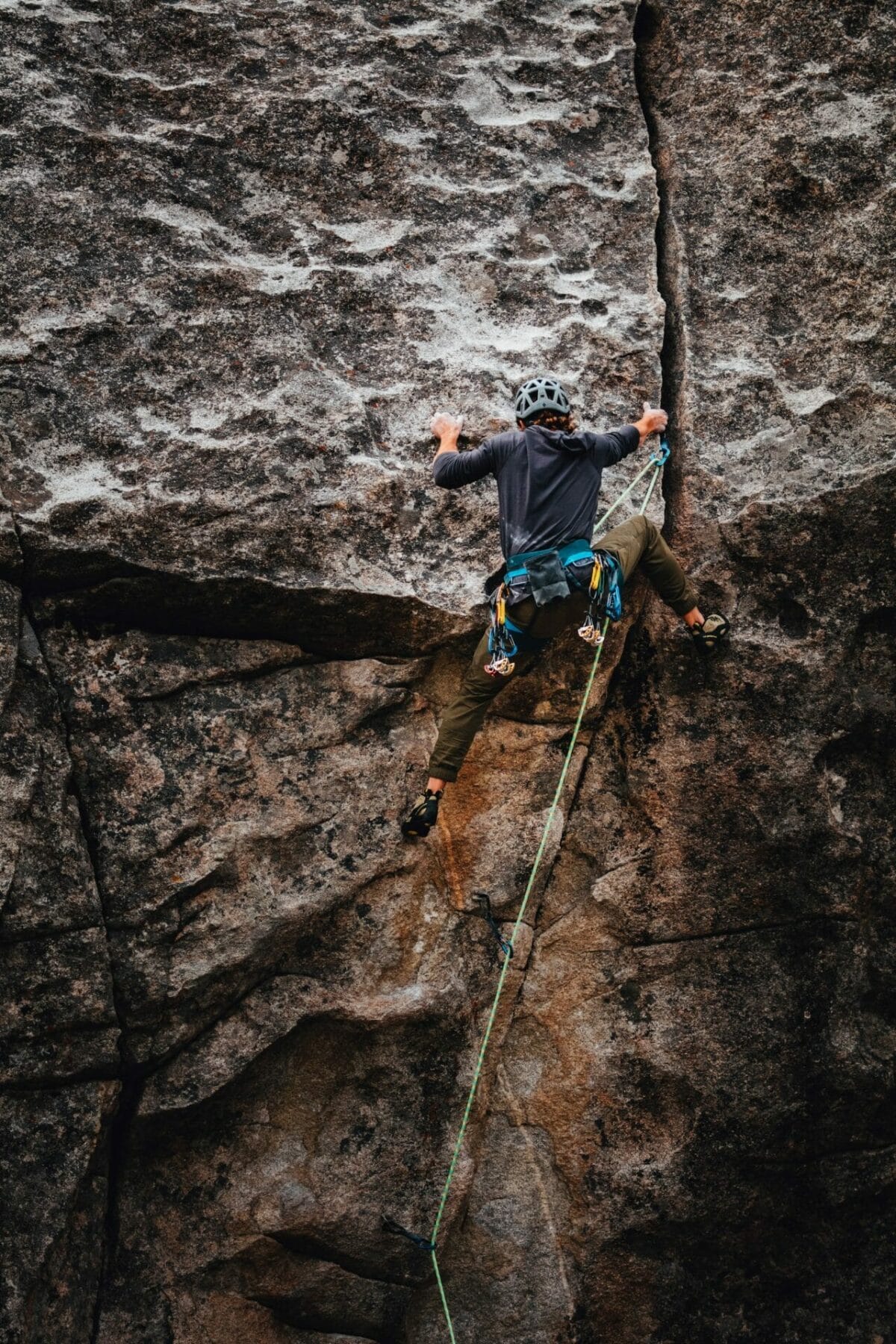
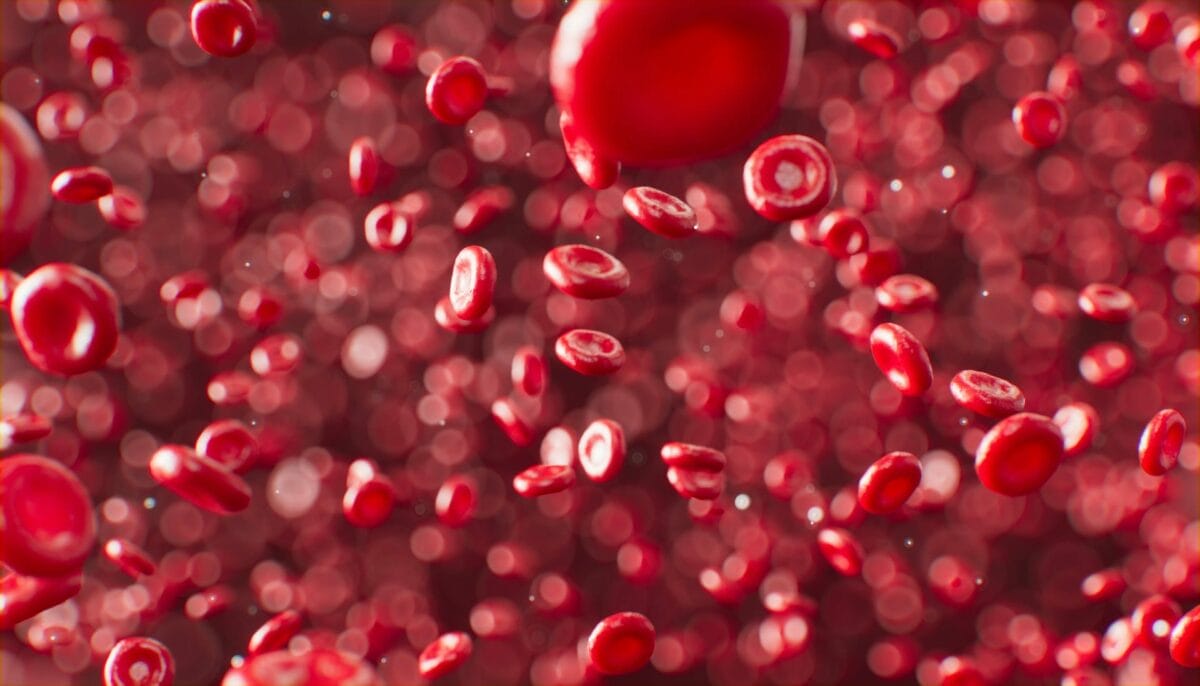
Sign up for updates that come right to your inbox.